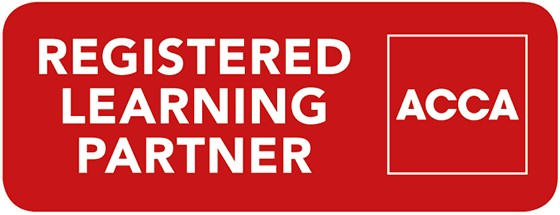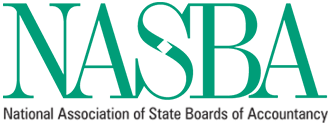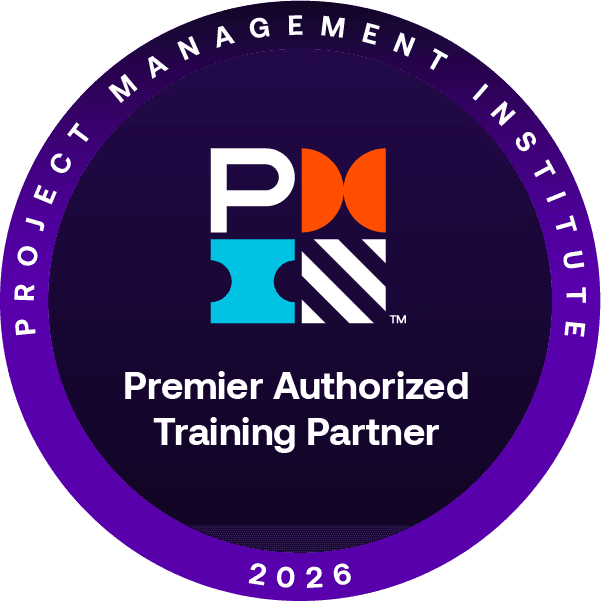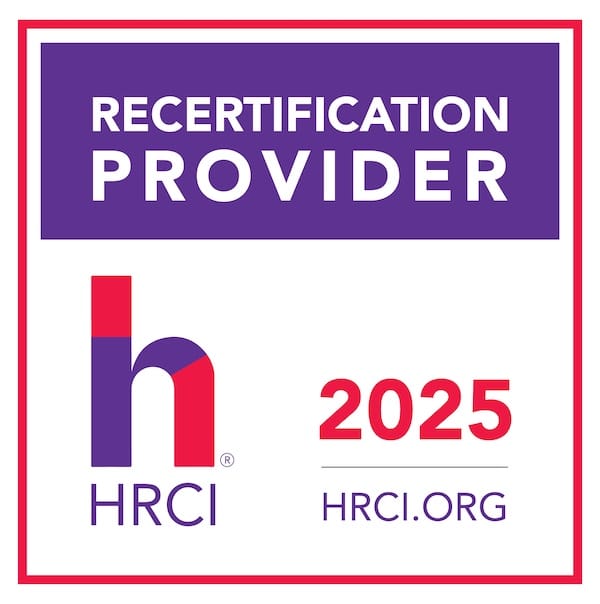Leadership Excellence and Strategic Planning with OKRs
Equips Leaders With the Skills to Align Organizational Goals With
Measurable Outcomes, Foster Collaboration and Drive Sustainable Success
INTRODUCTION:
Achieving organizational success in today’s fast-paced and competitive environment requires visionary leadership and strategic planning. The Objectives and Key Results (OKRs) methodology has emerged as a powerful tool for aligning organizational goals with measurable outcomes. This approach ensures clarity, focus, and accountability across all levels of the organization.
The Leadership Excellence and Strategic Planning with OKRs course is designed to empower leaders and managers with the knowledge and skills needed to implement OKRs effectively. Participants will learn how to craft strategic objectives, define measurable key results, and align them with their organization’s vision. The course focuses on both the theoretical underpinnings of OKRs and their practical application in various business contexts.
Through interactive workshops and real-world case studies, participants will explore best practices for executing OKRs, monitoring progress, and overcoming implementation challenges. Additionally, the course emphasizes fostering a culture of transparency, collaboration, and continuous improvement.
Whether you are a team leader, project manager, or executive, this course will equip you with the tools to drive organizational performance and achieve sustainable results. Join us to transform your strategic planning approach and lead your organization toward measurable success.
Core Competencies Leadership Excellence and Strategic Planning with OKRs Training Course:
- Strategic Thinking: Ability to align OKRs with organizational vision and goals.
- Goal Setting: Expertise in formulating clear, ambitious, and achievable objectives.
- Analytical Skills: Designing and measuring key results using quantifiable metrics.
- Leadership: Guiding teams effectively to achieve aligned objectives.
- Performance Management: Monitoring progress and making data-driven adjustments.
- Problem-Solving: Addressing challenges in OKRs implementation with practical solutions.
COURSE OBJECTIVES:
- Understand the principles and benefits of the OKRs methodology.
- Learn to develop strategic objectives aligned with organizational goals.
- Design measurable and impactful key results to drive success.
- Enhance team alignment and collaboration using OKRs.
- Master tools and techniques for monitoring and evaluating OKRs.
- Build a sustainable framework for implementing OKRs in diverse contexts.
- Overcome common challenges in adopting the OKRs methodology.
- Drive continuous improvement and innovation in organizational performance.
- Foster a culture of transparency, accountability, and teamwork.
- Equip leaders with practical skills to achieve long-term organizational success.
TRAINING METHODOLOGY:
This course employs a blended learning approach that integrates theoretical knowledge with practical applications. Participants will benefit from:
- Interactive Lectures: Foundational knowledge on OKRs principles and strategic planning.
- Workshops and Case Studies: Hands-on experience in crafting objectives, designing key results, and implementing OKRs.
- Group Discussions: Encouraging collaboration and idea-sharing to solve challenges.
- Real-World Examples: Insights from successful organizations leveraging OKRs.
- Practical Exercises: Tailored assignments to implement OKRs in participants’ professional contexts.
The methodology ensures that participants gain actionable insights and the confidence to apply OKRs effectively within their organizations.
COURSE CONTENT:
Unit 1: Introduction to OKRs and Strategic Planning
- Understanding the OKRs methodology and its importance.
- The role of strategic planning in organizational success.
- Components of OKRs: Objectives and Key Results.
- Differences between OKRs and traditional goal-setting methods.
- Benefits of OKRs in enhancing performance.
Workshop: Analyze real-life OKRs case studies.
Unit 2: Crafting Strategic Objectives
- Characteristics of effective objectives (SMART and OKRs principles).
- Aligning objectives with organizational vision and strategy.
- Prioritizing objectives for optimal resource allocation.
- Designing individual and team objectives.
- Common pitfalls in setting objectives.
Workshop: Develop strategic objectives for a specific business context.
Unit 3: Designing Measurable Key Results
- Characteristics of impactful key results.
- Establishing metrics and tracking mechanisms.
- Linking key results with key performance indicators (KPIs).
- Tools and techniques for monitoring progress.
- Evaluating the success of key results.
Workshop: Create measurable key results for organizational objectives.
Unit 4: OKRs Execution and Alignment
- Aligning OKRs across organizational levels.
- Developing an implementation roadmap.
- Delegating responsibilities effectively.
- Leveraging tools for OKRs tracking.
- Ensuring consistency and adaptability in OKRs execution.
Workshop: Build an OKRs execution plan for a project.
Unit 5: Enhancing Team Performance with OKRs
- Encouraging collaboration and transparency through OKRs.
- Conducting effective review meetings.
- Motivating teams to achieve shared goals.
- Building accountability within teams.
- Addressing team-level challenges in OKRs adoption.
Workshop: Design an OKRs framework for team success.
Unit 6: Overcoming OKRs Implementation Challenges
- Identifying barriers to OKRs success.
- Strategies for overcoming resistance to change.
- Adapting OKRs to dynamic organizational needs.
- Balancing ambitious objectives with achievable results.
- Learning from OKRs implementation failures.
Workshop: Solve real-world OKRs implementation challenges.
Unit 7: Sustaining Success and Continuous Improvement
- Embedding OKRs into organizational culture.
- Best practices from global organizations using OKRs.
- Driving continuous improvement through iterative OKRs.
- Aligning OKRs with long-term goals.
- Scaling OKRs for large and complex organizations.
Workshop: Develop a sustainable OKRs strategy for an organization.
الأسئلة الشائعة (FAQs):
هذا البرنامج التدريبي هامٌ لك لأنه مصمّم خصيصًا لمساعدتك على تحقيق أهدافك المهنية وتلبية احتياجاتك العملية بشكل فعّال ومستدام. من خلال مشاركتك في البرنامج، ستتمكن من:
- تطوير مهاراتك ومعارفك التخصصية التي تعزّز من أدائك المهني وتزيد من قدرتك على مواجهة التحديات في بيئة العمل.
- الحصول على أدوات وتقنيات حديثة تساعدك في تحسين كفاءتك، وتعزز من فرص تقدمك المهني والشخصي.
- توسيع آفاقك المهنية، من خلال اكتساب خبرات جديدة وأساليب عمل مبتكرة تواكب المتغيرات العالمية وأحدث الممارسات في المجال.
- تعزيز قدراتك القيادية والتنافسية في مجالك، مما يسهم في فتح آفاق وفرص وظيفية متميزة.
- تطبيق المهارات المكتسبة بشكل عملي ومباشر في بيئة عملك، مما يحقق نتائج ملموسة تنعكس إيجابيًا عليك وعلى مؤسستك.
لذا فإن مشاركتك في هذا البرنامج تمثل استثمارًا حقيقيًا في مستقبلك المهني، وتساعدك على تحقيق نجاحات مهنية ملموسة ومستدام
تتم عملية اختيار المدربين والمستشارين ة في يوروماتيك | EuroMaTech وفق مجموعة من المعايير العلمية والمهنية الدقيقة، من أبرزها:
- المؤهلات العلمية والخبرات المهنية: نحرص على اختيار مدربين ومستشارين ذوي مؤهلات أكاديمية متخصصة وخبرات مهنية موثّقة في مجالات اختصاصهم.
- الكفاءة والمهارات التدريبية: نقيّم قدرة المدرب أو المستشار على توصيل المعرفة والمهارات بشكل فعّال ومهني، مع استخدام أساليب تدريبية تفاعلية ومتطورة.
- السجل المهني والسمعة: نولي اهتمامًا خاصًا لسجل الأداء السابق والتقييمات المهنية والشهادات المرجعية لضمان الجودة والمصداقية.
- الاعتمادات والشهادات المهنية: يُفضل اختيار المدربين والمستشارين الحاصلين على شهادات مهنية معتمدة دوليًا لتعزيز الموثوقية وجودة الأداء.
- القدرة على التفاعل والتواصل: يُشترط توفر مهارات تواصل عالية، والقدرة على التفاعل مع المتدربين وتقديم الدعم والتوجيه بشكل مستمر طوال البرنامج التدريبي.
- التقييمات ورضا العملاء: مراجعة وتقييم سجل الأداء السابق، بما يشمل آراء العملاء وتوصياتهم ومدى رضاهم عن الخدمات التي قُدمت سابقًا.
تضمن هذه المعايير تقديم برامج تدريبية واستشارية تتمتع بأعلى مستويات الجودة والفعالية، وتلبي احتياجات المشاركين والمؤسسات على حدٍ سواء.
نلتزم في ة في يوروماتيك | EuroMaTech تقديم برامجنا التدريبية بأعلى معايير الجودة والتميّز، والتي تشمل:
- تصميم البرامج وفق معايير عالمية: اعتماد أفضل الممارسات الدولية في تصميم وتطوير المحتوى التدريبي.
- المدربون ذوو الكفاءة العالية: اختيار مدربين وخبراء معتمدين يتمتعون بخبرات ومؤهلات مهنية متميزة في تخصصاتهم.
- محتوى تدريبي محدّث ومستمر: التحديث الدوري للمحتوى التدريبي وفق أحدث التطورات العلمية والمهنية.
- التفاعل والتطبيق العملي: استخدام منهجيات تدريب تفاعلية وتطبيقية تضمن تعزيز المهارات العملية وإمكانية نقلها إلى بيئة العمل.
- تقييم ومتابعة مستمرة: اعتماد نظم تقييم متعددة المستويات لقياس فعالية التدريب، وتحليل نتائج التقييم بهدف التحسين المستمر.
- تجربة المشاركين ورضا العملاء: ضمان تجربة تدريبية متميزة تلبي توقعات المشاركين، مع أخذ آرائهم وتوصياتهم كمدخل أساسي في تحسين الجودة.
- اعتمادات دولية ومهنية: التعاون مع الجهات الدولية للحصول على اعتمادات مهنية، مما يعزز مصداقية البرامج المقدمة وقيمتها المهنية.
تضمن هذه المعايير تحقيق مستوى عالٍ من الجودة والفعالية في جميع برامجنا التدريبية، بما يدعم أهداف المشاركين ويعزز الأداء المؤسسي.
نعتمد تنفيذ برامجنا التدريبية في يوروماتيك | EuroMaTech على منهجيات حديثة ومتنوعة تستند إلى أفضل الممارسات العالمية في مجال التدريب والتطوير، والتي تشمل:
- التعلم التفاعلي (Interactive Learning): حيث يُشارك المتدرب بشكل نشط في النقاشات والأنشطة الجماعية، لتعزيز تبادل الخبرات وزيادة التفاعل.
- التعلم التطبيقي (Experiential Learning): باستخدام دراسات الحالة (Case Studies)، والمحاكاة (Simulations)، وورش العمل التطبيقية (Workshops) لتطبيق المهارات والمعارف عمليًا.
- التدريب المدمج (Blended Learning): والذي يدمج بين التدريب الحضوري والتدريب الإلكتروني لتحقيق المرونة ورفع كفاءة التعلم.
- التوجيه والإرشاد (Coaching & Mentoring): تقديم الدعم الفردي للمشاركين من خلال جلسات الإرشاد الشخصي لتحقيق التطوير المستمر.
- التعلم التعاوني (Collaborative Learning): تعزيز التعاون من خلال تشكيل فرق عمل صغيرة تناقش وتنفذ مشاريع تدريبية مشتركة لتحقيق أهداف البرنامج.
تم تصميم معظم برامجنا ودوراتنا التدريبية بشكل يتيح المشاركة للجميع دون اشتراط خبرة مسبقة أو مؤهلات محددة. مع ذلك، هناك بعض الدورات التخصصية أو المتقدمة التي تتطلب مستوى معينًا من المعرفة أو الخبرة السابقة لضمان تحقيق أقصى استفادة للمشاركين. في هذه الحالة، يتم توضيح متطلبات وشروط التسجيل بوضوح في وصف الدورة أو البرنامج التدريبي. كما يسعد فريقنا بمساعدتكم في اختيار البرامج الأنسب بما يتوافق مع خبراتكم وأهدافكم المهنية.
يتم قياس أثر وفعالية هذا البرنامج التدريبي، في يوروماتيك | EuroMaTech من خلال استخدام منهجية علمية تتضمن عدة مستويات متدرجة ومعتمدة عالميًا، واتي تشمل أربعة مستويات رئيسية:
- ردة الفعل (Reaction): تقييم مدى رضا المشاركين عن البرنامج التدريبي من خلال استطلاعات الرأي والاستبيانات التي تقيس مستوى القبول ومدى ملاءمة المحتوى وطرق العرض.
- التعلم (Learning): قياس اكتساب المشاركين للمعارف والمهارات الجديدة من خلال اختبارات ما قبل وبعد التدريب (Pre-Post Assessments)، لتحديد مقدار التغير المعرفي والسلوكي لدى المشاركين.
- السلوك (Behavior): رصد وتحليل مدى تطبيق المشاركين للمهارات والمعارف المكتسبة عمليًا في بيئة العمل بعد التدريب، ويستخدم لهذا الغرض الملاحظة المباشرة، والتقييم من قبل المشرفين، واستطلاعات الأداء بعد فترة من انتهاء البرنامج.
ومن خلال استخدام هذه المنهجية متعددة المستويات، يمكن الوصول إلى نتائج دقيقة وموضوعية تضمن التحسين المستمر في تصميم وتنفيذ البرامج التدريبية لتحقيق أقصى فائدة على المستويين الفردي والمؤسسي.
يحصل المشاركون بعد إتمام البرامج والدورات التدريبية المقدمة من ة في يوروماتيك | EuroMaTech بنجاح على شهادة حضور معتمدة من الجهة المنظمة، تتضمن اسم الدورة وعدد الساعات التدريبية التي تم إنجازها. كما تُمنح في بعض البرامج التخصصية شهادات مهنية معتمدة دوليًا من هيئات ومؤسسات مرموقة، وذلك حسب نوع الدورة ومتطلباتها. تكون هذه الشهادات ذات قيمة مهنية عالية، وتدعم المسار الوظيفي للمشاركين وتُعزّز فرصهم المهنية وتنافسيتهم.
يمكنك اختيار الدورة التدريبية الأنسب لأهدافك واحتياجاتك المهنية من خلال اتباع الخطوات التالية:
- تحديد الأهداف المهنية والشخصية: حدّد بوضوح ما ترغب في تحقيقه من مشاركتك في الدورة التدريبية، سواءً تطوير مهارات محددة أو تعزيز المعرفة في مجال معين.
- تقييم المهارات الحالية: قيّم مستوى مهاراتك وخبراتك الحالية، وحدّد المجالات التي ترغب في تحسينها أو تعزيزها بشكل خاص.
- مراجعة محتوى الدورات: اطلع على وصف وأهداف الدورات المتاحة بعناية، وتأكد من توافق المحتوى مع أهدافك المهنية ومتطلبات وظيفتك.
- الاطلاع على متطلبات الدورة: تأكد من توافق مؤهلاتك وخبراتك مع متطلبات التسجيل في الدورة، خاصة في الدورات التخصصية أو المتقدمة.
- الاستشارة والتواصل مع خبرائنا: تواصل مع فريقنا المختص للاستفادة من نصائحهم وإرشاداتهم في اختيار الدورة الأنسب لك، بناءً على أهدافك وتطلعاتك المهنية.
اتباعك لهذه الخطوات سيساعدك في اختيار البرنامج التدريبي او الشهادة المهنية الأفضل الذي يحقق أهدافك ويدعم تقدمك المهني بشكل فعّال.
نعم، نوفّر في يوروماتيك | EuroMaTech للمشاركين مواد تدريبية متكاملة تشمل أدلة التدريب، والعروض التقديمية، والنماذج التطبيقية. يتم تقديم هذه المواد إلكترونيًا على أجهزة محمولة تُمنح للمشاركين، وذلك لسهولة استخدامها والرجوع إليها مستقبلًا في بيئة العمل، مما يضمن الاستفادة المستدامة من المحتوى التدريبي وتعزيز التطبيق العملي للمهارات المكتسبة.
نعم، توفر ة في يوروماتيك | EuroMaTech برامج ودورات تدريبية معتمدة بنظام التدريب الحضوري والتدريب الافتراضي (عن بُعد)، مع ضمان الالتزام بأعلى معايير الجودة التدريبية وتوفير بيئة تفاعلية متكاملة. تتميّز الدورات الافتراضية باستخدام منصات تقنية حديثة وأدوات تفاعلية متطورة لضمان تجربة تدريبية متميزة، تسمح للمشاركين بالتفاعل المباشر مع المدربين والزملاء، وتحقيق أقصى استفادة ممكنة من محتوى البرنامج التدريبي، بصرف النظر عن موقعهم الجغرافي
نعم، نحرص في ة في يوروماتيك | EuroMaTech على تحديث وتطوير محتوى برامجنا ودوراتنا التدريبية، بشكل دوري ومنهجي وفقًا لأحدث المعايير العالمية وأفضل الممارسات المهنية، مع مراعاة المستجدات والتوجهات المستقبلية ذات العلاقة. كما نعتمد في عملية التحديث على التغذية الراجعة من المشاركين والخبراء، بالإضافة إلى متابعة التطورات المعرفية والتقنية في مختلف المجالات، لضمان أن يكون المحتوى المقدّم مواكبًا للتحديات الحالية والمستقبلية، وقادرًا على تلبية المتطلبات المهنية المتغيرة للمشاركين والمؤسسات على حدٍ سواء.
نعم، يمكن تنفيذ هذا البرنامج التدريبي داخل مقر مؤسستكم بنظام التدريب الداخلي (In-House Training)، حيث نوفّر لكم حلولاً تدريبية مخصصة ومرنة، تراعي احتياجات المؤسسة وأهدافها الاستراتيجية، مع إمكانية تكييف المحتوى التدريبي بما يتوافق مع متطلبات بيئة العمل لديكم. ويتميّز التدريب الداخلي بتعزيز التفاعل المباشر مع المدربين، وتحقيق خصوصية وملاءمة عالية، إضافةً إلى توفير الوقت والتكلفة، وتعزيز فرص التطبيق العملي المباشر لمخرجات البرنامج في بيئة العمل الفعلية.
نعم، نوفّر خدمات دعم ومتابعة متكاملة لما بعد التدريب، تشمل تقديم الاستشارات المهنية المتخصصة، وجلسات التوجيه والإرشاد الفردي والجماعي، بالإضافة إلى تقييم دوري لمدى تطبيق المشاركين للمهارات المكتسبة في بيئة العمل. كما نحرص على التواصل المستمر مع المتدربين لتقديم الدعم اللازم وضمان تحقيق أقصى استفادة ممكنة، مما يُسهم في تعزيز فعالية التدريب وتحقيق نتائج مستدامة تلبي الأهداف المهنية للمشاركين ومؤسساتهم.
تُقدَّم برامجنا ودوراتنا التدريبية في عدد من أبرز المدن والعواصم العالمية، في فنادق ومنتجعات فاخرة من فئة الخمس نجوم، توفر بيئة تدريبية راقية ومريحة تحفّز على التعلم والتفاعل الإيجابي، مع تجهيزات حديثة وتقنيات متطورة تضمن تجربة تعليمية فريدة وفعّالة.
كما تتوفر إمكانية تنفيذ البرامج التدريبية داخل مقر مؤسستكم (التدريب الداخلي In-House Training)، أو من خلال منصات التدريب الافتراضي (عن بُعد)، وفقًا لاحتياجات مؤسستكم ومتطلباتكم الخاصة، وبما يتماشى مع أهدافكم المهنية والاستراتيجية
الإعتمادات الدولية:
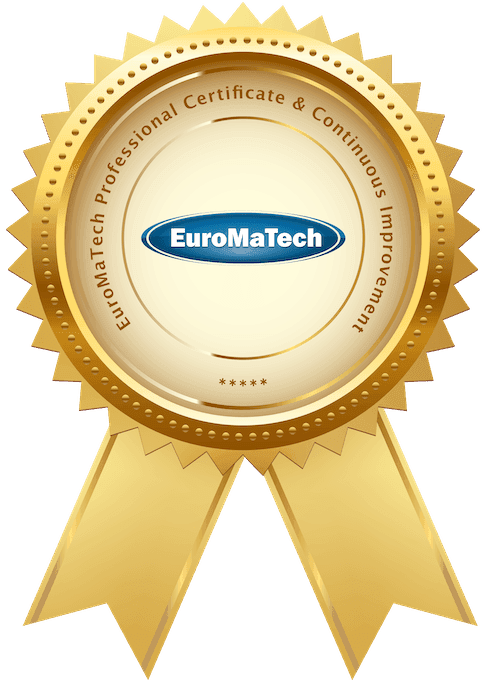
EuroMaTech Accredited Certification (EAC)
تلتزم يوروماتيك للتدريب والاستشارات (EuroMaTech Training & Consultancy) بتوفير برامج تدريبية احترافية معتمدة، صُممت وفق اعلى معايير الجودة ، بهدف تطوير وتعزيز المهارات والكفاءات المهنية والشخصية للمشاركين، بما يلبي متطلبات سوق العمل وتطلعات التميز المؤسسي. وتسعى هذه البرامج إلى تمكين المشاركين من تعزيز قدراتهم العملية، ورفع مستوى أدائهم الوظيفي، وإكسابهم الخبرات المتقدمة التي تؤهلهم لمواجهة التحديات المهنية بكفاءة وفاعلية. وعند استيفاء متطلبات الحضور الكامل واجتياز الاختبار النهائي بنجاح، يحصل المشاركون على شهادة معتمدة من يوروماتيك، تتمتع بالاعتراف والموثوقية إقليميًا ودوليًا، مما يمنحها قيمة استراتيجية عالية. وتُشكل هذه الشهادة إضافة نوعية لمسار التطوير المهني، وتفتح للمشاركين آفاقًا واسعة نحو الترقي الوظيفي وتحقيق التفوق والتميز داخل مؤسساتهم وخارجها.
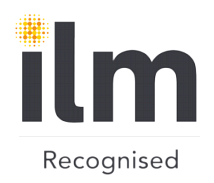
تُعد شركة يوروماتيك للتدريب والاستشارات (EuroMaTech Training & Consultancy) مزودًا تدريبيًا معتمدًا من معهد القيادة والإدارة (ILM)، التابع لمجموعة City & Guilds – إحدى أعرق وأكبر المؤسسات البريطانية في مجال التعليم المهني منذ عام 1878. ويُعتبر ILM مرجعًا عالميًا في تطوير القدرات القيادية والإدارية، حيث يمنح مؤهلات احترافية معترفًا بها دوليًا، ويُعد الخيار الأول للمنظمات التي تسعى إلى بناء قادة فعالين وقادرين على مواجهة تحديات بيئة الأعمال الحديثة.
إن اعتماد يوروماتيك من ILM يعكس التزامها المستمر بتقديم برامج تدريبية متوافقة مع أحدث المعايير الدولية، تسهم في تمكين المشاركين من اكتساب مهارات قيادية وإدارية متقدمة تساعدهم على تحقيق نتائج ملموسة داخل مؤسساتهم. وتوفر هذه البرامج بيئة تعليمية محفزة تدمج بين المعرفة النظرية والتطبيق العملي، بإشراف نخبة من الخبراء والمتخصصين في القيادة والإدارة.
ومن خلال هذه الدورات المعتمدة، يحصل المشاركون على فرصة مميزة لتوسيع معارفهم، وتعزيز قدراتهم التنافسية، والاستفادة من دعم مهني رفيع المستوى، مما يفتح أمامهم آفاقًا مهنية أوسع ويؤهلهم لقيادة التغيير والابتكار داخل مؤسساتهم. إن شهادات ILM لا تُعتبر مجرد اعتماد أكاديمي، بل تُشكل قيمة عملية حقيقية تساعد الأفراد على تحسين أدائهم، وتعزز من قدرة المؤسسات على تحقيق الريادة والتميز المستدام.
لماذا تختار دورات يوروماتيك المعتمدة من ILM؟
- مؤهلات معترف بها عالميًا: شهادات ILM تثبت التزامك بأعلى المعايير القيادية الدولية.
- تعزيز المسار المهني: البرامج تمنحك القدرة على قيادة الفرق، رفع الأداء المؤسسي، واتخاذ قرارات استراتيجية مؤثرة.
- تطبيق عملي ومرونة في التعلم: محتوى مبني على مواقف واقعية يمكنك تطبيقها مباشرة في عملك.
للاطلاع على قائمة البرامج المعتمدة من ILM، يُرجى زيارة:
برامج الإدارة والقيادة – EuroMaTech
Looking to boost your leadership and management skills with some top-notch credentials? Our ILM Courses are just what you need! The Institute of Leadership & Management (ILM) is one of the UK's most respected names in leadership development, setting high standards that employers across the globe trust. By jumping into an ILM course, you'll gain practical skills, boost your confidence, and drive real results in your organization.
Why Choose Our ILM Recognized Training Courses?
Thinking about stepping up your leadership game? Here's why picking an ILM-recognized course is a smart move:
- Globally Respected Qualifications: ILM qualifications are a big deal to employers. They show you've trained to international leadership standards.
- Career Advancement: Our ILM courses arm you with the know-how to manage teams, drive performance, and make sharp business decisions.
- Flexible Learning and Practical Application: The focus is on real-world application, so you can put your new leadership skills to work right away.
These courses are perfect if you're ready to sharpen your strategic leadership skills and make a significant impact in your organization.
For more information on ILM – please visit www.i-l-m.com
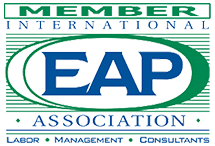
يوروماتيك للتدريب والاستشارات (EuroMaTech Training & Consultancy) مزود تدريبي معتمد ومسجّل لدى الجمعية الدولية لمتخصصي برامج مساعدة الموظفين (EAPA)، مما يمنحها الصلاحية لإصدار ساعات التطوير المهني (PDHs) للمشاركين في برامجها المعتمدة. وتُعد EAPA أكبر وأقدم هيئة مهنية متخصصة عالميًا في مجال مساعدة الموظفين، حيث تمثل المرجعية الدولية الأولى لوضع وتطبيق المعايير الاحترافية التي تُعزز من كفاءة الأفراد وتدعم استدامة التميز المؤسسي.
إن اعتماد يوروماتيك من قبل EAPA يعكس التزامها الثابت بتقديم برامج تدريبية بمعايير عالمية عالية الجودة، ويتيح للمشاركين فرصة الحصول على ساعات تطوير مهني معتمدة تُمكّنهم من التقدم للحصول على اعتماد CEAP® أو تجديده، بما يعزز مساراتهم المهنية ويمنحهم ميزة تنافسية على المستوى الدولي.
تنويه: استخدام شعار EAPA لا يُعتبر توصية بجودة البرنامج، بل يعني أن البرنامج قد استوفى كافة معايير الجمعية الدولية (EAPA) ليُعتمد ضمن متطلبات PDHs اللازمة لشهادة CEAP®.
EuroMaTech is registered with the International Employee Assistance Professional Association (EAPA) as a sponsoring organization to issue Professional Development Hours (PDHs) to attendees on approved courses. EAPA is the world’s largest, oldest and most respected organization for Employee Assistance professionals.
For more information on EAPA, please visit www.eapassn.org
To view a full list of EAPA pre-approved programmes, please click here
The use of this logo is not an endorsement by EAPA of the quality of the course. It means that this course has met the EAPA’s criteria to the pre-approved for CEAP® certification or recertification PDHs.
كافة الحقوق محفوظة لشركة يوروماتيك للتدريب والإستشارات الإدارية © 2024
Copyright © 2024 EuroMaTech Training & Consultancy. All rights reserved
هذا الموقع محمي بحقوق التآليف والطبع والنشر وفقًا لقوانين دولة الإمارات العربية المتحدة والقوانين الدولية ذات الصلة.
لا يجوز طبع وإعادة انتاج هذا الموقع او محتوياته أو أي جزء منه أو حفظه آليًا أو نقله بأية وسيلة الكترونية أو غير الكترونية، أي مخالفة لهذه الحقوق ستؤدي إلى المسائلة القانونية.








